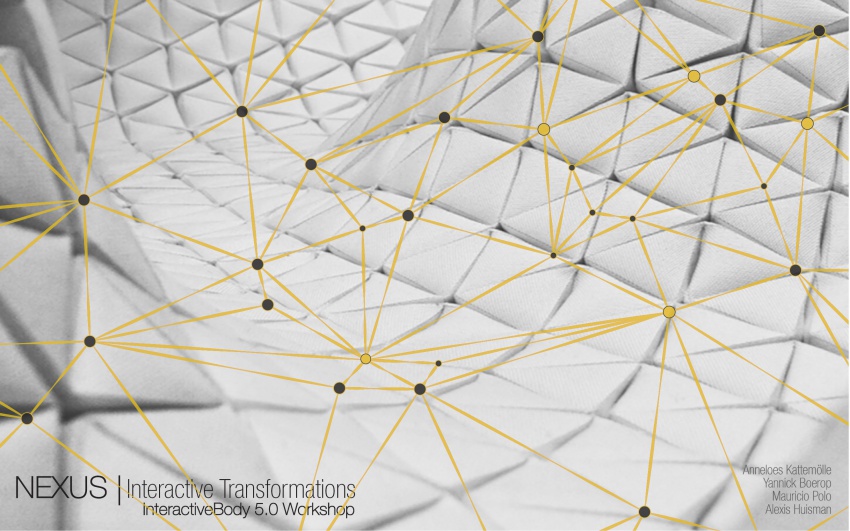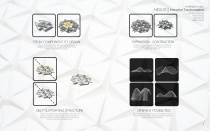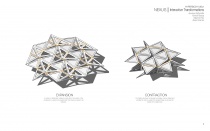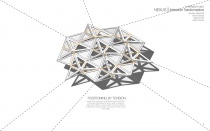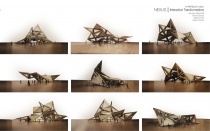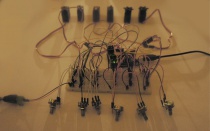Difference between revisions of "Msc1G8:Workshop"
From ex25
(→Nexus) |
(→Nexus) |
||
| Line 10: | Line 10: | ||
<html> | <html> | ||
| − | <iframe src="https://player.vimeo.com/video/ | + | <iframe src="https://player.vimeo.com/video/145825594" width="850" height="478" frameborder="0" webkitallowfullscreen mozallowfullscreen allowfullscreen></iframe> <p><a href="https://vimeo.com/145825594">NEXUS2 InteractiveBody 4.0 workshop</a> on <a href="https://vimeo.com">Vimeo</a>.</p> |
</html> | </html> | ||
| + | |||
| + | |||
| + | =='''Nexus <Model>'''== | ||
=='''NEXUS (Short Description)'''== | =='''NEXUS (Short Description)'''== | ||
Revision as of 05:47, 16 November 2015
Contents
Nexus <Prototype>
NEXUS InteractiveBody 4.0 workshop on Vimeo.
NEXUS2 InteractiveBody 4.0 workshop on Vimeo.
Nexus <Model>
NEXUS (Short Description)
The aim of the Nexus structure is managing to make a self-supporting, expandable and flexible surface in order to produce different spatial configurations. To do so, we used as base an origami tessellation, which is basically a folding tiling on a plane, using one or more geometric shapes. This surface based on triangles, allows the possibility of expansion and contraction by folding. To control these actions on the surface, a motor will be placed between each triangle and wires are attached to certain points in the structure. By the combination of specific strength, tension and looseness, several spatial qualities can be produced
